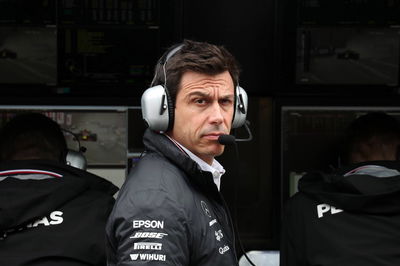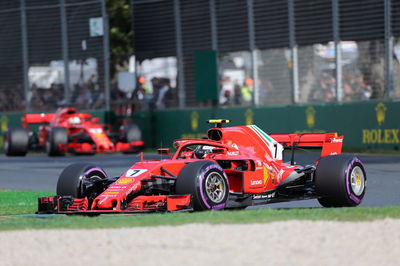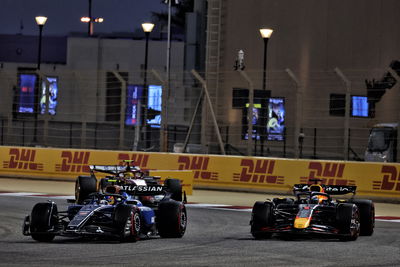Wolff: Australian GP mistake training for Bahrain
Mercedes chief Toto Wolff has explained the processes the defending Formula 1 world champions have undergone to avoid its Australian Grand Prix disaster which saw Lewis Hamilton lose out to Sebastian Vettel and Ferrari.

Mercedes chief Toto Wolff has explained the processes the defending Formula 1 world champions have undergone to avoid its Australian Grand Prix disaster which saw Lewis Hamilton lose out to Sebastian Vettel and Ferrari.
After an early pit stop to cover Ferrari’s split strategy with Kimi Raikkonen, Hamilton looked to be managing his advantage at the front of the field with Vettel yet to pit. But a Virtual Safety Car triggered due to the Haas pit stop blunder gave Vettel the ideal opportunity to pit with his rivals slower and nipped back out ahead of Hamilton to take vital track position to seal a shock win for Ferrari.
Mercedes and Hamilton were left in “disbelief” having felt comfortably ahead with the German manufacturer confirming “an offline tool” used for delta lap times caused an error in the calculation for the time gap the British driver needed to Vettel under the VSC.
Having seen different issues hurt Mercedes in the past, only to immediately bounce back, Wolff is hoping the steps his team have taken to avoid the problem in the future will ensure a strong fightback in Bahrain.
“We made mistakes and did not perform to our maximum - and it reminded us that this is the toughest racing series in the world, where every error is punished,” Wolff said. “It hurt to leave all those points on the table, especially because we know we had the pace to win in Australia.
“Back at base, we did what we always do after a tough weekend. We made sure that we understand what went wrong and put a process in place to make sure that we don't see a similar issue in the future. These painful moments are the real learning experiences. Mistakes become training.
“We expect Bahrain to be another challenging weekend, although the challenges will be of a completely different nature.
“The race in the desert is tricky because the conditions change drastically between sessions. FP1 and FP3 take place in the heat of the day whereas qualifying and the race itself take place after sunset so it's much cooler. That makes it extremely difficult to find the right set-up with the car.”
Wolff is also wary of the threat Ferrari pose having seen the Italian manufacturer top the speed traps in Australia and feels outright straight-line speed being vital for a performance edge in Bahrain.
“Bahrain is also a power-sensitive race with the long straights,” he said. “We saw in Melbourne that the Ferraris in particular were very quick, so I expect it to be a close battle.”











